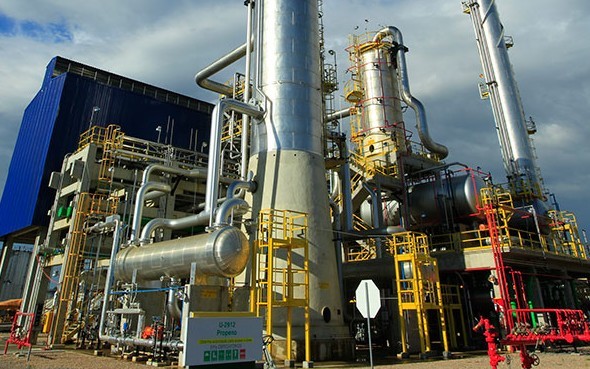
Brazil’s top finance official is being roped into a growing scandal over Petrobras’ $1.19billion (£720million) purchase of a Texan plant, the latest in a string of troubles plaguing the company’s money-losing refining unit.
Finance Minister and Petrobras Chairman Guido Mantega is being called upon to testify before a lower-house commission on the 2006 purchase of the Pasadena refinery from Astra Oil Trading, which bought the plant a year before for $42.5 million.
President Dilma Rousseff, then Petrobras’ chairwoman, said directors approved the $370 million purchase of a 50% stake without knowledge of a clause that later forced it to buy the rest as part of a $820.5million legal settlement.
The outcry over the acquisition is shining the spotlight on Petrobras’s runaway refining investments and project delays that contributed to 17.7billion reais ($7.7billion) in losses for the unit last year. At $32billion, the price tag for the state-run company’s two main refinery projects is almost three times investments in the World Cup, which triggered violent protests across Brazil last year.
“The company is saddled at the top with a decision process that is very accident prone,” said Chris Palmer, a portfolio manager at Henderson Global Investors who oversees about $2.5 billion in assets, including Petrobras shares.
“What I care about isn’t the quality of the transparency. It’s the quality of the decisions.”
CEO Summoned
The request yesterday for Mantega to testify followed summons from a Senate committee to chief executive Maria das Gracas Foster and Energy Minister Edison Lobao earlier this week.
The Finance Ministry declined to comment on the Pasadena transaction. The presidential palace referred questions to Rousseff’s March 19 statement on the refinery purchase, declining to comment on the political impact of the case. Lobao’s office said he has so far agreed to similar requests to testify in Congress and referred further questions to Petrobras.
The state-run company, which is collaborating with government agencies in the matter, created its own committee to investigate the purchase and has 45 days to deliver findings to the board, Petrobras said in an e-mailed response to questions.
The scandal has been heating up since March 19 when Estado de S. Paulo newspaper published minutes of the 2006 meeting in which the Rousseff-led board approved the purchase from Astra.
The Pasadena scandal is the latest in a series of incidents showcasing mismanagement and political meddling in Petrobras, particularly in the so-called downstream sector, said Jose Mendonca Filho, leader of the opposition DEM party in the lower house, who pushed the financial control committee to call Mantega along with Cervero to testify.
He cited fuel-price caps that eroded Petrobras’s profitability and depressed its shares, as well as political pressure to build the Abreu e Lima refinery with Petroleos de Venezuela SA, which later dropped out.
‘Corruption Scandals’
The scandal, while bad news for Rousseff as she prepares to run for re-election in October, may turn out to be good for investors seeking better transparency and efficiency, said Rogerio Freitas, a partner at Teorica Investimentos.
Petrobras, whose financial woes wiped out 227 billion reais in shareholder value since March 2011, posted its best six-day rally in five years on Tuesday. The shares are up 11% since the Estado report.
“The more the company is scrutinized the better,” said Freitas, who helps manage about $100million including Petrobras shares at the Rio de Janeiro-based hedge fund.
“This attention ends up being positive. The company became an instrument of public policy. If that stops and turns instead into a normal company, that will be very good.”
Internal Probe
Gracas Foster told O Globo in an interview that the Rio- based oil producer won’t be subjecting Abreu e Lima to an internal audit.
Abreu e Lima, located in the northeastern state of Pernambuco, is set to refine 230,000 barrels a day when it opens in the fourth quarter, almost three years behind schedule.
Its $18.5billion price tag compares with an original budget of $2.5billion. The 150,000-barrel-a-day Comperj refinery is set to cost $13.5billion by the time it opens in 2016, four year later and 61% more costly than originally planned.
While Petrobras expanded refining output by about 15% last year by improving efficiency at its current plants in the past two years, it has not added new capacity since the 1980s. That’s forcing the company to import gasoline and diesel to meet domestic demand, which it buys at international prices and sells below cost at government-set prices.
Petrobras’s oil exploration and production division “actually stacks up pretty well on an international basis,” said Nick Robinson, a portfolio manager at Aberdeen Asset Management, which manages about $15billion of Latin American shares, including Petrobras.
Concern stems from the refining “and the amount of money that has gone to that segment,” he said.